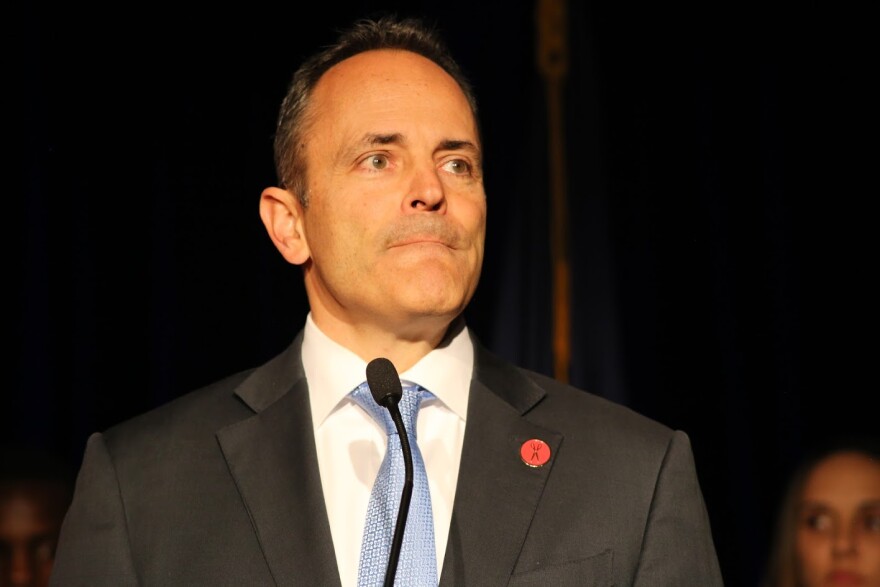A group of political scientists and researchers, including Benjamin Knoll at Centre College, conducted an exit poll of the Kentucky governor’s race. They interviewed nearly 4,000 residents in the state.
What they found was that Matt Bevin won overwhelmingly among evangelical and born-again Christians (62-36). He also won male voters (52-44), those over age 65 (53-47) and those with only a high school education or less (53-43). Beshear was very strong with black voters (86-14), college graduates (60-39), people under 40 (62-34), those who say they never attend church services (71-26) and women (57-42). None of that is too surprising — it generally jives with who belongs to the two parties both in Kentucky and nationally.
Here’s where Bevin probably lost the race. According to the exit poll, 16 percent of self-described Republicans backed Beshear, compared to 81 percent who supported the governor. In other words, about one in six Kentucky Republicans broke with Bevin. In contrast, Beshear overwhelmingly won Democrats (94-6) and had an advantage with independents (58-31.)
In fact, the exit poll suggests Bevin was uniquely unpopular among Republicans. Fifteen percent of people who said they have a favorable view of President Trump backed Beshear. Similarly, 16 percent of people who said that they voted for Republican Daniel Cameron for attorney general also voted for Beshear. Cameron, unlike Bevin, won basically all of Kentucky’s Republican vote (91 percent.)
For people following national politics and the debate over whether the Democrats should nominate a more liberal candidate (Bernie Sanders, Elizabeth Warren) or a more center-left one (Joe Biden, Pete Buttigieg), this data and the Beshear-Bevin race overall offers arguments for both sides. For those who favor a more moderate approach, Beshear illustrates the virtues of that style. Beshear did not campaign on very progressive ideas, instead keeping the focus largely on his controversial opponent. And he won, getting a sizable bloc of Republicans behind him in a very red state. You could imagine Buttigieg or Biden taking this approach in a campaign against Trump.
On the other hand, Beshear just barely won and every down-ticket Democrat lost. Voter turnout was fairly high for a Kentucky governor’s election, but the majority (58 percent) of Kentucky’s registered voters did not cast ballots. Beshear, even with his moderate views, was blown out in the most rural areas of the state. And since he campaigned as a moderate, I would not expect Beshear to take aggressively liberal stances on many issues as governor. Add all of that up and I doubt progressives in Kentucky or nationally will take Beshear’s victory as a sign that they should cede to the strategy of the party’s center-left wing.
Finally, the survey had some potentially bad news for Senator Mitch McConnell. Kentuckians are relatively positive about Trump, according to the survey: 41 percent view him very favorably, 13 percent somewhat favorably, 7 percent somewhat unfavorably, 39 percent very unfavorably. McConnell is viewed very favorably by only 21 percent, somewhat favorably by 25 percent, somewhat unfavorably by 13 percent and very unfavorably by 41 percent. So essentially Trump is in the positive (54-46) and McConnell in the negative (46-54), and McConnell lacks the enthusiastic support that the president has.
Perry Bacon Jr. is a national political writer based in Louisville. You can reach him via Twitter or e-mail.

